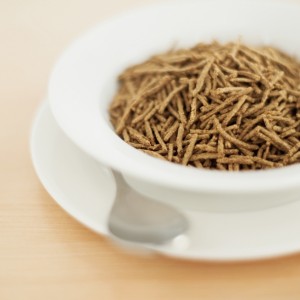Beating Diabetes

Diabetes in Control is a world leader for current and accurate on-line diabetes information for medical professionals. Steve Freed, R.Ph, CDE, CPT and Publisher of the Diabetesincontrol.com website, recently joined CDiabetes.com for a Twitter Chat event on the topic of “Beating Diabetes.” Here is some of the information from that chat.
How do I make my diet right for me? What should I focus on?
 Healthy eating is so important for controlling diabetes. There are many things you can do, but being aware of your carbs and checking your blood sugar frequently are the most important. Practicing portion control, reading labels, eating fresh and fiber-rich foods, and balancing protein, healthy carbs and good fats are also good practices.
Healthy eating is so important for controlling diabetes. There are many things you can do, but being aware of your carbs and checking your blood sugar frequently are the most important. Practicing portion control, reading labels, eating fresh and fiber-rich foods, and balancing protein, healthy carbs and good fats are also good practices.
Start your day with a protein breakfast – eggs, plain Greek yogurt, cottage or ricotta cheese or protein powder. Eat natural foods and avoid processed ones. And keep a food journal that you can review with an RD or a diabetes health professional.
Does a high fiber diet contribute to diabetes prevention?
 Fiber, especially soluble fiber, can reduce the risk of developing diabetes while improving blood glucose control for people who do have diabetes. A high fiber diet keeps you feeling full for longer, and is also important for maintaining a healthy colon and digestive system.
Fiber, especially soluble fiber, can reduce the risk of developing diabetes while improving blood glucose control for people who do have diabetes. A high fiber diet keeps you feeling full for longer, and is also important for maintaining a healthy colon and digestive system.
Eat fiber-rich foods every day, including whole grains and oats, beans, nuts, fruit and vegetables. Chia seeds, in addition to helping you feel full, might also help keep your blood sugar levels from spiking.
What are the best medications to take to lower blood sugars?
 The best medications are the ones that are affordable for you and compatible with your lifestyle. Take your medications as prescribed by your health care provider, and let them know if you experience any side effects or physical changes.
The best medications are the ones that are affordable for you and compatible with your lifestyle. Take your medications as prescribed by your health care provider, and let them know if you experience any side effects or physical changes.
In addition to popular prescription medications, you might benefit from over-the-counter vitamins and supplements. Consult with your health care provider before adding any vitamins or supplements to your health plan. NatureMade, for example, makes vitamins specifically for people with diabetes or prediabetes. Talk to your pharmacist about which vitamins and supplements are best for you.
What are some tips to enhance patient-doctor communication?
 The best way to enhance communication with your doctor is to ask questions! If you find that you forget your questions when you’re in the doctor’s office, write them down before your appointment and bring them with you. Also bring the records of your numbers to review. Above all else, don’t be afraid to question your doctor about anything that concerns you. Remember, you can control diabetes, but you can’t cure it. Be honest with your provider, keep accurate food journals and honest numbers, and work with your medical team to address all aspects of your care. Admit when you’re burnt out and need help, but also let your doctor know when you have success!
The best way to enhance communication with your doctor is to ask questions! If you find that you forget your questions when you’re in the doctor’s office, write them down before your appointment and bring them with you. Also bring the records of your numbers to review. Above all else, don’t be afraid to question your doctor about anything that concerns you. Remember, you can control diabetes, but you can’t cure it. Be honest with your provider, keep accurate food journals and honest numbers, and work with your medical team to address all aspects of your care. Admit when you’re burnt out and need help, but also let your doctor know when you have success!
Does anemia increase the chance of diabetes?
No, anemia does not increase the chance of diabetes, but anemia, diabetes and chronic kidney disease do frequently overlap. People with diabetes can also have anemia due to not eating well or not absorbing nutrients from their food.
What is the effect of aspirin on wound care?
 Aspirin can help reduce inflammation. Consult with your health care professional before beginning an aspirin regime, especially if you are already on blood thinners.
Aspirin can help reduce inflammation. Consult with your health care professional before beginning an aspirin regime, especially if you are already on blood thinners.
What is the connection between diabetes and dementia?
Recent studies have shown that there is a connection between diabetes and dementia. There are dietary issues and vitamin deficiencies in common between the two conditions, and elevated blood sugar levels can promote dementia.
Reduce the risk for dementia with a similar approach to managing diabetes, by being physically active, eating healthy, controlling blood pressure and stopping smoking.
—
For the full transcript of the twitter chat event, go to http://cdiabetes.com/beating-diabetes-stay-in-control/

